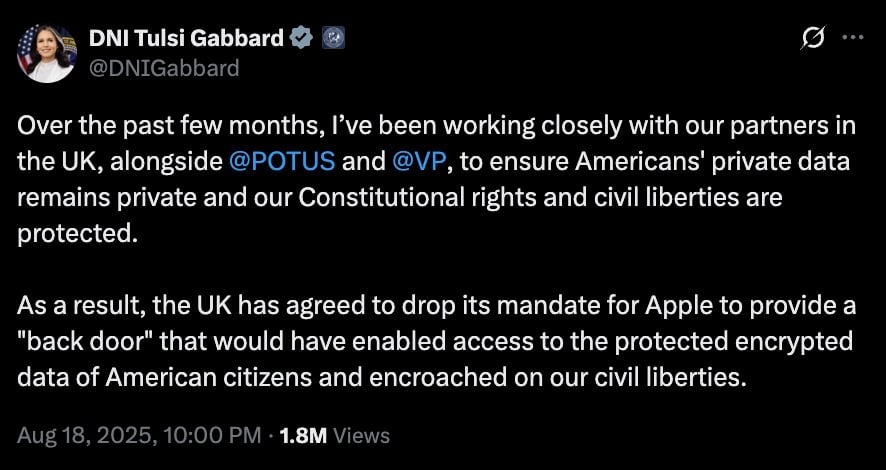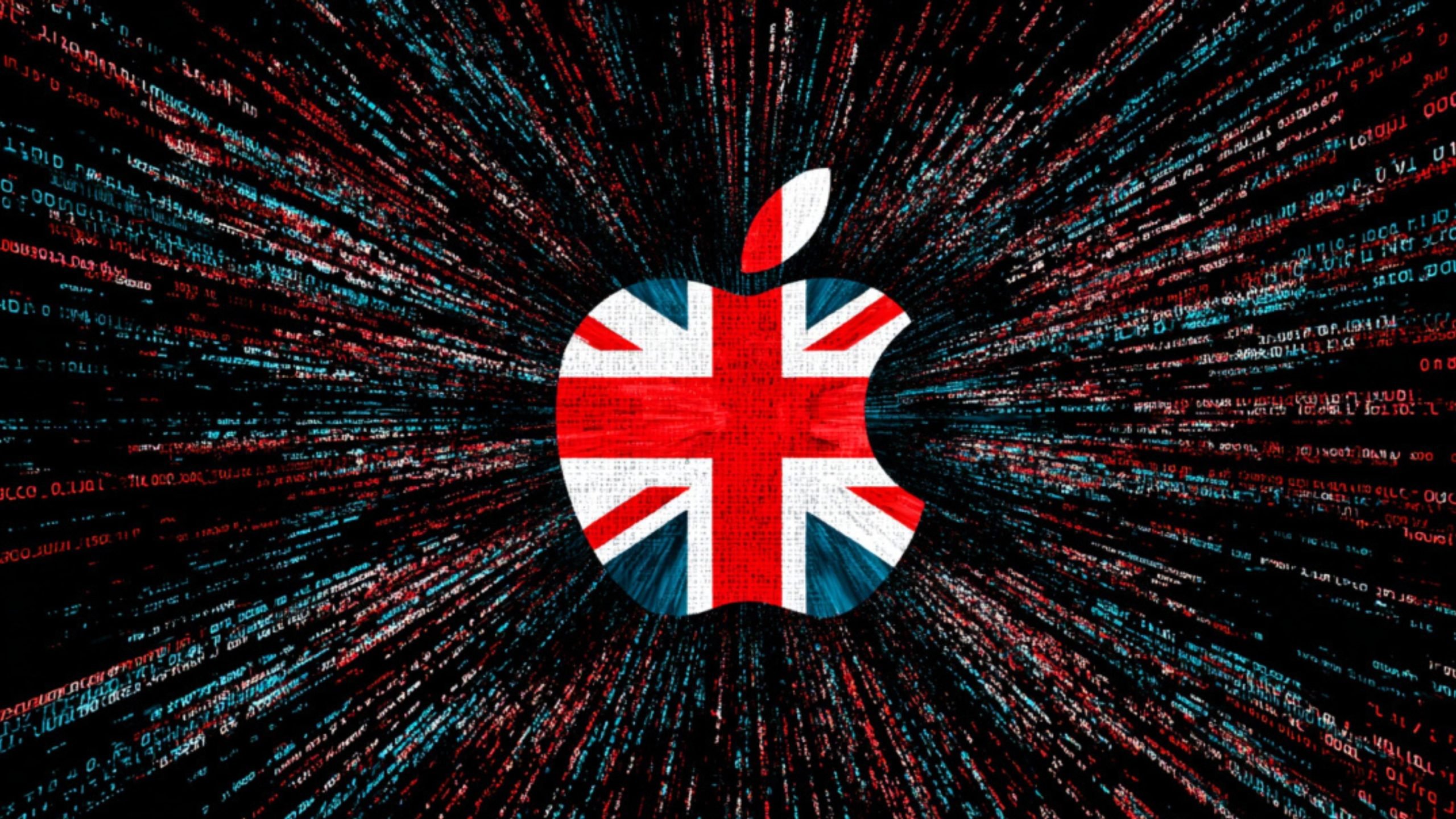British officials have reportedly backed away from their attempt to pressure Apple into weakening its encryption systems, a move that would have jeopardized the privacy of users worldwide.
US Director of National Intelligence Tulsi Gabbard confirmed the shift in a statement posted on X, saying the outcome followed months of coordination with the UK, President Donald Trump, and Vice President JD Vance.

The announcement coincided with Prime Minister Keir Starmer’s visit to Washington, where he joined other European leaders for talks with Trump that also covered the ongoing war in Ukraine.
Although the UK government did not directly address the specifics of any agreement, a spokesperson reaffirmed its commitment to cooperating with the US on security while also protecting civil liberties. “We will always take all actions necessary at the domestic level to keep UK citizens safe,” the spokesperson said.
Apple declined to comment on Gabbard’s statement.
The main dispute was a demand from British authorities that Apple introduce a backdoor into its encrypted systems.
Apple opposed the order, maintaining that it would not create a method to give any party access to users’ encrypted data. Cybersecurity experts warned that any such mechanism would eventually be discovered and exploited by malicious actors.
In response to the UK’s pressure, Apple disabled its Advanced Data Protection feature for British users in February.
The feature, which is still available in other regions, provides end-to-end encryption so that only the user can access their iCloud data. Lawmakers in the US had raised alarms over the UK’s demand, pointing to risks that such a system could be abused by foreign governments or criminal groups.
US authorities have also been reviewing whether the UK breached the terms of the CLOUD Act, which prohibits either country from issuing data demands that affect the citizens of the other.
Gabbard acknowledged this review in a letter to Congress dated February 25, stating that the US was assessing whether the UK had violated the bilateral agreement.
While the UK has stepped back from its demand that Apple compromise its encryption protections, the broader fight over digital privacy is far from resolved. Across the European Union, a controversial proposal known as “Chat Control” is advancing, one that would compel messaging platforms to scan all user content, even on encrypted services.
If passed, the regulation would effectively dismantle end-to-end encryption by requiring providers to monitor private messages for potential illegal material.










